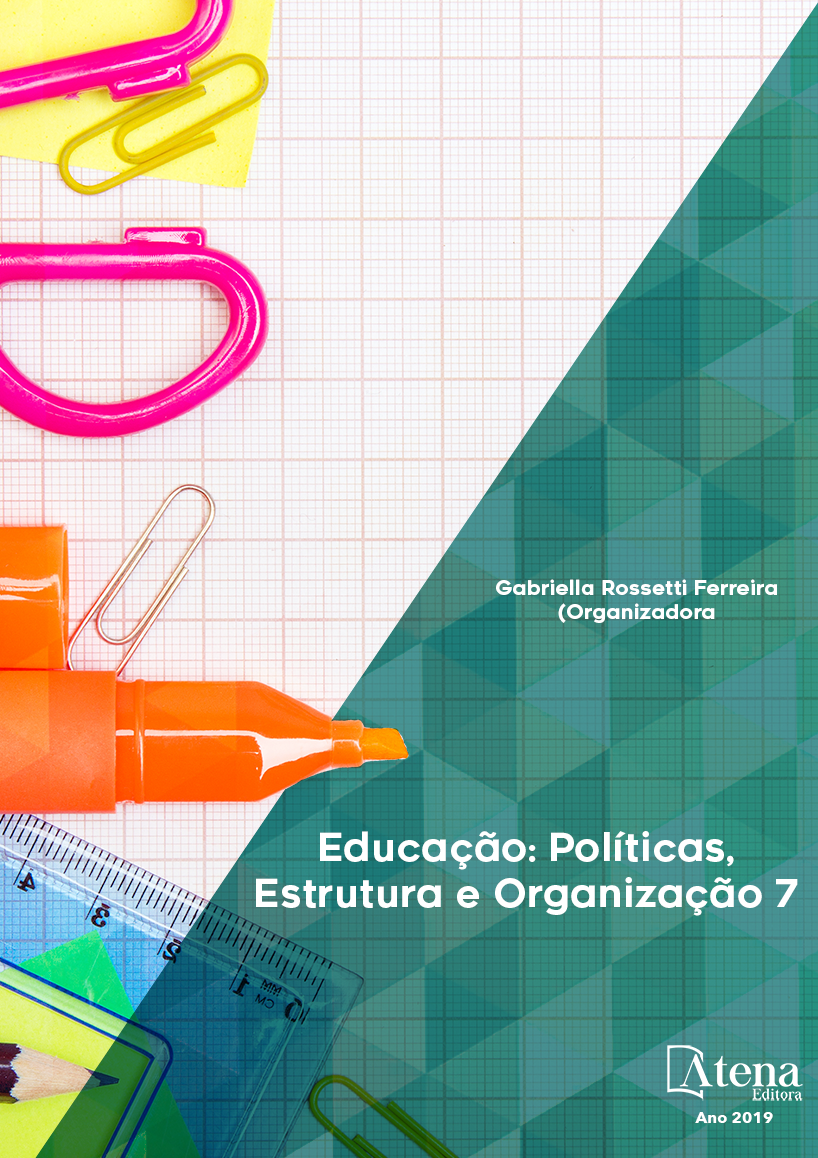
ERA UMA VEZ... UM DIÁLOGO COM A LITERATURA INFANTIL E O CORPO EM MOVIMENTO
Pensar a prática pedagógica por
caminhos que consideram o corpo sujeito
é um grande desafio e pensar essa prática
considerando a literatura infantil é desafiador
articular a magia e a fruição com o corpo em
movimento. Este trabalho desponta de um relato
de experiência desenvolvida em um Centro
Municipal de Educação Infantil, com crianças
de 02 a 04 anos, versando sob um diálogo com
o corpo e a literatura infantil. Sob os diálogos de
Abramovich (2006), Cavalcanti (2002) e Moreira
(2012, buscamos fazer o entrelaçamento das
ideias de Merleau-Ponty (1999), discursando
sobre a complexidade do corpo pelo viés
da fenomenologia. Sob a metodologia da
pesquisa descritiva, buscamos evidenciar esse
momento rico em aprendizagens, fazer uma
interface entre essas duas áreas, mediada pela
sensibilidade, intelecção e transcendência,
ludicidade e prazer pois a criança é um ser
corporalmente ativo. Discursar sobre corpo e
a literatura infantil, é levar aos professores,
a reflexão de que o conceito de corpo é muito
mais que uma forma fisiológica de estar no
mundo, corpo é aprendizagem, é também
encantamento, história, cultura, corpo é prazer,
é riso, é arte, corpo é literatura.
ERA UMA VEZ... UM DIÁLOGO COM A LITERATURA INFANTIL E O CORPO EM MOVIMENTO
-
DOI: 10.22533/at.ed.0881903044
-
Palavras-chave: Literatura infantil, corpo, movimento, infância.
-
Keywords: infant literature, body, movement, childhood.
-
Abstract:
Thinking about pedagogical
practice along paths that consider the subject
body is a great challenge and thinking this
practice considering children’s literature is
challenging to articulate magic and enjoyment
with the body in motion. This work emerges
from an experience report developed in a
Municipal Center of Early Childhood Education,
with children from 02 to 04 years, dealing with a dialogue with children’s body and
literature. Under the dialogues of Abramovich (2006), Cavalcanti (2002) and Moreira
(2012), we sought to interweave the ideas of Merleau-Ponty (1999), discoursing on the
complexity of the body through the bias of phenomenology. Under the methodology
of the descriptive research, we seek to highlight this rich moment in learning, to make
an interface between these two areas, mediated by the sensibility, intellection and
transcendence, playfulness and pleasure since the child is a corporeally active being.
To talk about body and children’s literature, is to bring to teachers, the reflection that
the concept of body is much more than a physiological form of being in the world, body
is learning, is also enchantment, history, culture, body is pleasure, is laughter, it is art,
body is literature.
-
Número de páginas: 15
- Sára Maria Pinheiro Peixoto
- Ana Aparecida Tavares da Silveira
- Fabyana Soares de Oliveira
- Marcilene França da Silva Tabosa
- Maria Aparecida Dias
- SARA MARIA PINHEIRO PEIXOTO


